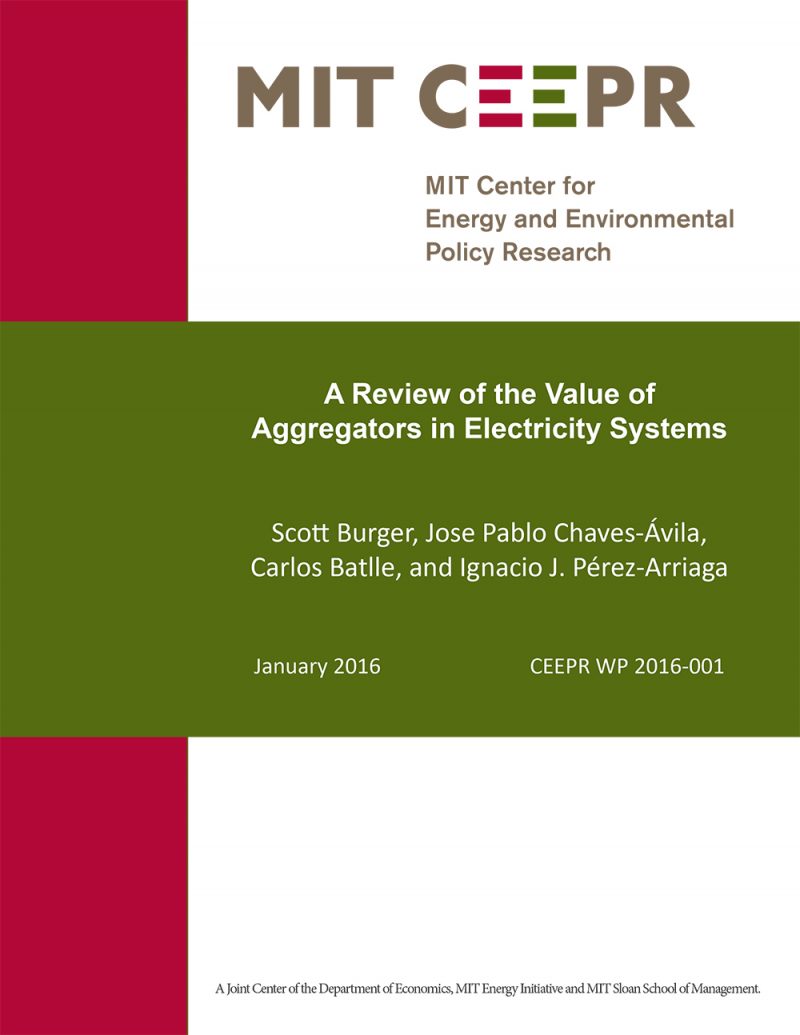The Value of Aggregators in Electricity Systems
Scott Burger, Jose Pablo Chaves-Ávila, Carlos Batlle, Ignacio J. Pérez-Arriaga
January 2016
Distributed energy resources (“DERs”) are being adopted throughout the world. These technologies, if properly integrated, have the potential to not only deliver the valuable electricity services that have traditionally been provided by centralized generating units, but also new services enabled by their distributed nature. Aggregators may play a critical role in enabling these DERs to provide these valuable electricity services. This paper defines the factors that will determine the role of aggregators in power systems and describes the value that these aggregators can provide under different technological and regulatory scenarios. This document identifies three main categories of value: fundamental value, transitory value and opportunistic value. Fundamental value refers to value that is intrinsic to aggregation and is independent of the market or regulatory context. Transitory value exists today and may extend into the future, although certain technological or regulatory changes may diminish its magnitude. Finally, opportunistic value emerges as a result of regulatory or market design flaws that can be exploited by aggregation of DERs and that may endanger the economic efficiency of the power system. Identifying the value of aggregators is relevant in order to determine whether this activity should be regulated and how, or left open to market forces. Furthermore, in cases opportunistic value is identified, regulatory actions should to be taken to avoid endangering system economic efficiency.
Keywords: Value of Aggregators; Aggregation; Distributed Energy Resources; Fundamental Value; Transitory Value; Opportunistic Value; Regulation; Market Design.



